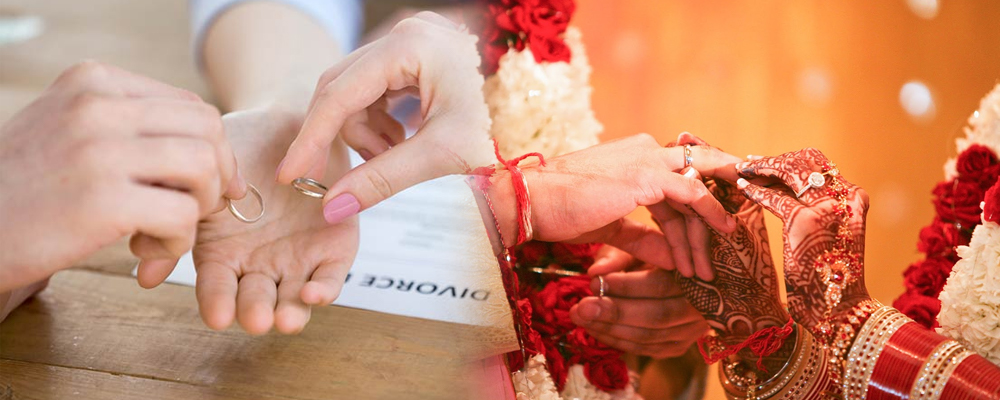Let’s understand the concept of mutual divorce based on mutual consent through this article. The provision of mutual divorce is given under section 28 of the Special Marriage Act 1954 and under section 13B of the Hindu Marriage Act, 1955.
Mutual Consent Divorce under Hindu Marriage Act
As per the Hindu Marriage Act, mutual consent is said to be the ground for divorce, and as per the amendment in 1976 section 13B was incorporated into this act. Section 13B of the Hindu Marriage Act tells the procedure and the important requirements for the parties who want the divorce on their mutual consent, in mutual consent divorce the bride and the groom or the wife and the husband give their consent mutually to end the marriage and get themselves separated as this mode of the divorce reduces the time as well as saves the money as compared to the one side form of divorce that is known as a contested divorce.
Requirements in a Mutual Consent Divorce:
- There should be at least 1 year that husband and wife must be living separately
- The consent must be obtained without any pressure, or undue influence, there should be free consent to get the divorce mutually
- The possibility of the adjustment is merely negligible; there is no option for reconciliation between the husband and wife.
Need A Legal Advice
The internet is not a lawyer and neither are you. Talk to a real lawyer about your legal issue

Procedure to get mutual consent divorce:
- For the mutual consent divorce proceeding, there are two mandatory appearances to be made before the Family Court
- Both the couple in mutual divorce are presented before the court as a Petitioners
- First and foremost in the divorce procedure, a joint divorce petition needs to be drafted and then must be filed before the relevant family court
- The spouse may choose a separate lawyer or the same lawyer to initiate the proceeding
- This mutual consent divorce petition contains the joint statement of the couple that states that they are not able to cohabit together and thus they should be granted the divorce
- The petition must consist of the agreement that covers the alimony, maintenance, custody of the children, etc
- And after the first motion, the statements of both parties are recorded and duly signed by them
- After the first move, the six month cooling period is given to the couple for the final time to settle the dispute and given with the last hope if the couple thinks to terminate the divorce and sort out the dispute
- After the six months is completed and the couple thinks that they disagree to live together, then the couple or the spouses have to appear for the second motion also known as the final hearing
- If the second motion has not been filed within 18 months then the court has the power to cancel the decree of divorce
- Any spouse who is willing to withdraw the consent can withdraw before the court passes the divorce decree
Benefits of the Mutual Consent Divorce
The unnecessary disputes are removed by the process of mutual consent divorce, this process not only saves money but also saves the time of the couples as well, the couple can easily settle all the disputes related to alimony, maintenance, and child custody before the marriage is dissolved, and thus after the couple had agreed the court without delay confirms and legalizes what so ever agreed by the couple.
The couple where they resided together for the final time, the place where the marriage was solemnized, or the place where the wife is living currently can file for a mutual divorce before the family court of that particular area.
How can Lead India help?
Lead India has the best expert lawyers who look upon these disputes and provide the best of the best divorce lawyers in Delhi, Mumbai, Kolkata, and other parts of India, they will assist you with all the required procedures.





 Talk to a Lawyer
Talk to a Lawyer